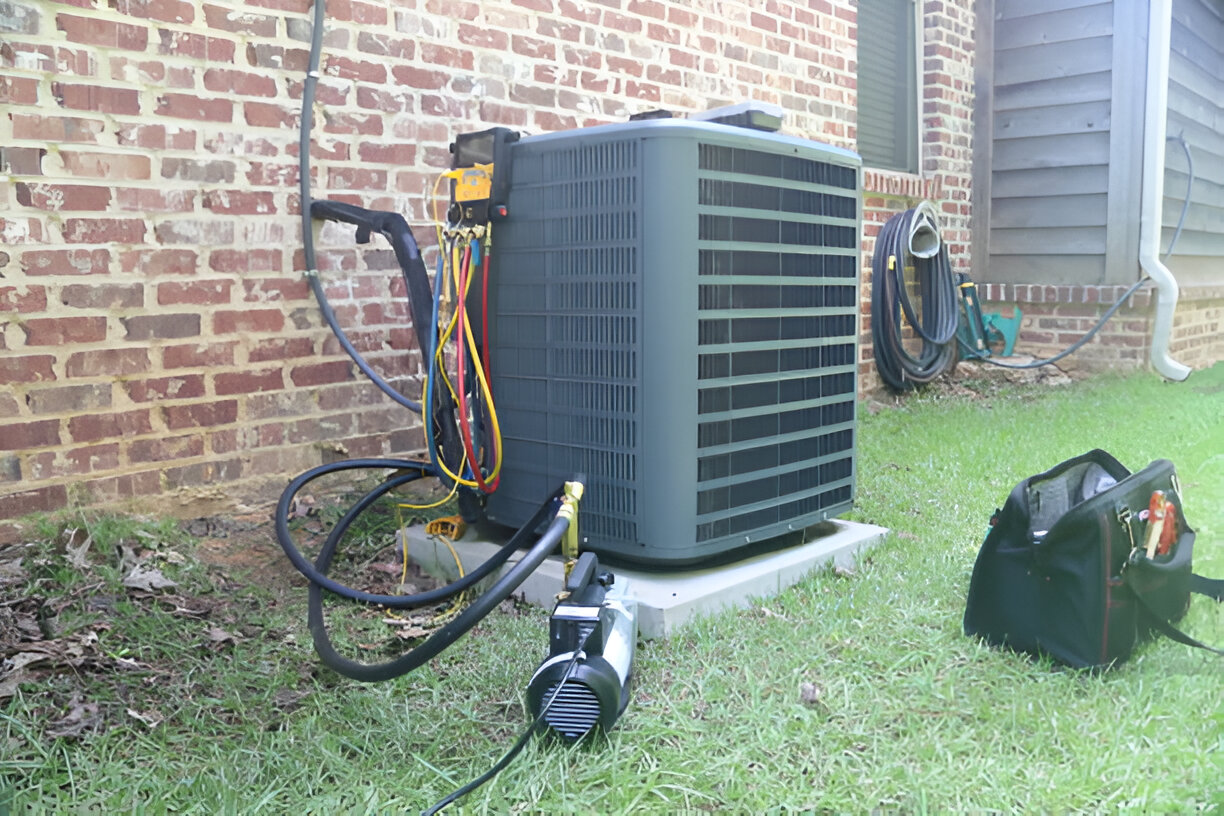Heat Pump Tune Up in Wellton, AZ
Heat Pump Tune Up service in Wellton, AZ boosts efficiency and reliability. Schedule today now for expert maintenance.




Heat Pump Tune Up in Wellton, AZ
A professional heat pump tune up in Wellton, AZ keeps your system running reliably through extreme summer heat and the dusty monsoon season. Regular maintenance reduces energy use, prevents mid-season failures, and extends equipment life — all critical in Yuma County where high temperatures and airborne dust put extra strain on heat pumps. This page explains what a typical tune up includes, common issues seen in Wellton homes, the diagnostic steps technicians take, expected duration, and how often to schedule service.
Why a heat pump tune up matters in Wellton, AZ
Wellton experiences long, hot summers, intense solar load, and periodic monsoon winds that carry grit and debris. Those conditions increase:
- System run time and wear
- Coil and filter contamination from dust and pollen
- Outdoor unit corrosion from irrigation spray and mineral dust
- Risk of refrigerant leaks and electrical stress from high loads
A proper tune up addresses these local factors to keep your heat pump efficient and reliable when you need it most.
Typical tune up tasks (what’s performed)
A full heat pump tune up includes a comprehensive checklist to optimize safety, efficiency, and comfort. Standard tasks include:
- Visual inspection of indoor and outdoor units, piping, vents, and insulation
- Cleaning coils and removing debris from outdoor condenser fins and indoor evaporator coils when accessible
- Checking and replacing air filters or advising on the correct filter type and replacement frequency
- Verifying refrigerant pressures and adjusting for correct superheat or subcooling to ensure proper charge
- Tightening electrical connections and inspecting contactors, capacitors, and relays for wear
- Measuring electrical draw of motors and compressors to confirm safe operation
- Calibrating and testing the thermostat and control settings for accurate temperature control
- Testing system performance including airflow, temperature split, cycle times, and overall output
- Lubricating moving parts where applicable and ensuring drain lines and pans are clear
- Documenting findings and recommending repairs or replacements if necessary
Technicians use gauges, amp meters, and temperature instruments, but explanations are provided in plain terms so homeowners understand any issues found.
Common heat pump problems in Wellton homes
Because of the local climate and usage patterns, these problems show up frequently:
- Clogged filters and dirty coils from persistent desert dust leading to reduced cooling capacity
- Poor airflow due to blocked vents or failing blower motors
- Refrigerant undercharge from slow leaks, causing inefficient operation and longer run times
- Electrical component failure from high cycle rates and heat stress
- Thermostat miscalibration or wiring faults that cause short cycling or uneven temperatures
- Condensate drain clogs that create moisture issues and potential indoor coil icing
Addressing these proactively during a tune up avoids emergency repairs during peak heat.
Diagnostic steps explained (non-technical)
During a tune up, technicians follow a logical diagnostic flow:
- Power down and inspect the system visually to spot obvious issues such as debris, loose wiring, or corrosion.
- Restore power and run the system through a cooling and heating cycle while measuring temperatures and pressures.
- Measure airflow and temperature differences between supply and return to evaluate performance.
- Use refrigerant pressure and temperature readings to determine if the charge is correct.
- Check electrical components and motor amperage to ensure safe operation.
- Test the thermostat and controls and make adjustments for accurate setpoints.
Each step provides data that confirms the system is healthy or identifies targeted repairs. Explanations are provided in plain language so you know what needs to be done and why.
Repairs and solutions commonly recommended
When a tune up uncovers problems, standard solutions include:
- Filter replacement and advising on MERV ratings suitable for desert dust without restricting airflow
- Coil cleaning and fin straightening to restore heat transfer efficiency
- Repairing refrigerant leaks and recharging the system to manufacturer specifications
- Replacing failing capacitors, contactors, or fan motors to prevent breakdowns
- Clearing or repairing condensate drains and replacing damaged drain pans or overflow switches
- Thermostat replacement or recalibration for better control and energy savings
Technicians prioritize safety and efficiency, recommending only necessary repairs and explaining the impact on system performance.
Expected duration
A standard heat pump tune up for a typical split-system heat pump usually takes about 60 to 90 minutes. Systems that are older, heavily soiled, or have hard-to-reach components can take longer. If repairs are identified, additional time will be required depending on parts and the complexity of the work.
Recommended frequency for Wellton homes
- Baseline: Schedule a comprehensive tune up at least once per year, ideally in early spring before peak cooling season.
- Recommended for Wellton: Because of heavy cooling loads and dusty conditions, consider twice-yearly service (pre-summer and post-monsoon) to maintain peak efficiency and reduce risk of summer failures.
- Filters: Check filters monthly; replace or clean every 1 to 3 months depending on your filter type and dust levels.
Regular maintenance prevents small problems from becoming expensive failures and keeps energy use down.
Signs you need a tune up now
Arrange service if you notice:
- Reduced cooling or heating capacity
- Rising energy bills without a change in use
- Short cycling or frequent on/off cycles
- Strange noises from the outdoor unit or indoor air handler
- Ice forming on the evaporator coil or outdoor unit
- Uneven temperatures between rooms
Early tune ups catch these signs before they lead to compressor damage or total system failure.
Long-term benefits of regular tune ups
- Improved energy efficiency and lower operating costs
- Fewer emergency repairs during extreme weather
- Longer equipment lifespan and more reliable comfort
- Better indoor air quality by reducing dust and allergen circulation
- Predictable performance and more even home temperatures
A heat pump tune up is an investment in comfort and system longevity, especially important in Wellton where climate stresses are high. Regular, professional maintenance ensures your system performs safely and efficiently when it matters most.


Financing
Financing Options Available: Get the comfort you need now with flexible payment plans.
.webp)





